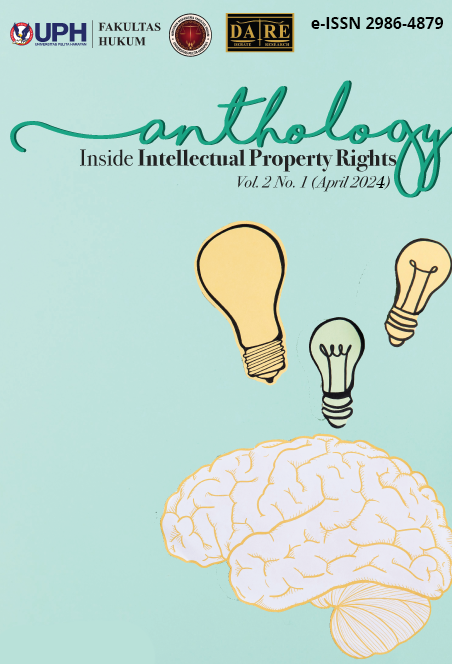Book Pirates and Copycats: Infringement That Speaks For Itself
Schlagworte:
Copyright Infringement, Trademark, Patent, Industrial DesignAbstract
The aim of this writing is to have clearer understanding on: (i) basic principles of copyright; (ii) general provisions on assignment, license, and testamentary disposition in the form of legal protection of books as protected works; and (iii) the distinctive characteristics between copyright, trade marks and patents. The results are, first, Copyright Act promotes the underlying principle of creations of persons minds (human works and intellect). In order to be protected, any works must be produced or originated by labour, skill, judgement and efforts of a person that requires intellect and intellectual process of thought. Having the fact that each person has different dimension and degree of cipta (produce), rasa (sense), and karsa (objective). Under declarative principle and first-to-create-system, automatic protection is given therefore registration is not cumpolsory, but optional. To satisfy evidence and proof of the creations, all titles may be registered in the copyright register and it shall be prelimenary proof of copyright.on the other hand, trademark, patent and industrial design applies first-to-file-system and protect temporary in terms of time period. Second, assignment is basicaly the right of the owner of the copyright to grant limited interest to another person through a writted agreement. Unlike an assignment, license ony permits one to do an act which would be unlawful without the license. Third, since the trademark law adopts firs-to-file-system, an unregistered trademark is not protected. However, no person can ”˜pass off’ his product as that of someone else. Such ”˜passing off” is a civil wrong and the owner of the original trade mark can sue the imitator and claim compesation from him. The owner of a registered trade mark can use both remedies. The Patent Law deals with inventions of products and process. Such inventions can be registered with the registrar of patents and the inventor then gets exclusive rights. There are certain inventions cannot be registered. Frivolous inventions, those whose use would be contrary to law and morality or injurious to public health are in such category. The Law of Industrial Design protects designs include shape, configuration, patterns or ornament applied to any article by manual, chemical or industrial process. They are judged solely by the eye. While the design is part of an article, trademark is not.
Literaturhinweise
Fajar Sugianto, Tomy Michael, Afdhal Mahatta. “Konstelasi Perkembangan Hermeneutika Dalam Filsafat Ilmu Atribusi Metode Penafsiran Hukum.” The Cambridge Companion to Gadamer, 2007, 36-51.
Gilardi, Filippo, Andrew White, Zhen Troy Chen, Shuxin Cheng, Wei Song, Filippo Gilardi, Andrew White, et al. “From Copycat to Copyright : Intellectual Property Amendments and the Development of Chinese Online Video Industries ABSTRACT.” International Journal of Cultural Policy 29, no. 2 (2023): 152-68. https://doi.org/10.1080/10286632.2022.2040494.
Locke, John. Two Treatises of Government. Edited by Peter Laslett. London: Cambridge University Press, 1988.
Oguz, By Ezgi, and Jamie Marsden. “Defending Against Copycat Packaging : The Role of Design from a Consumer ’ s Perspective” 9, no. 1 (2023): 73-90.
Sugianto, Fajar; Indradewi A, Astrid; Valencia, Claresta Devina. “BETWEEN VALUATION AND MONETIZATION OF EFFICIENCY IN ECONOMIC ANALYSIS OF LAW : IS IT POSSIBLE ? Fajar SUGIANTO Astrid Athina INDRADEWI Keywords :” Journal of International Trade, Logistics and Law 10 (2024): 286-94.
Sugianto, Fajar. “EFISIENSI EKONOMI SEBAGAI REMEDY HUKUM” 9, no. 18 (2013): 61-72.

